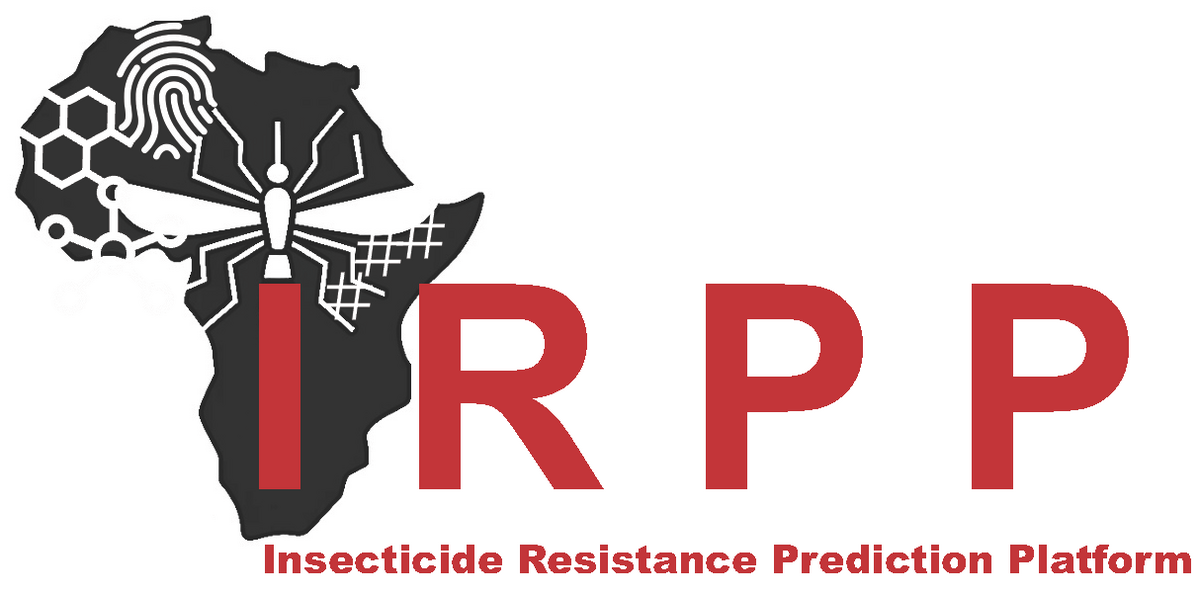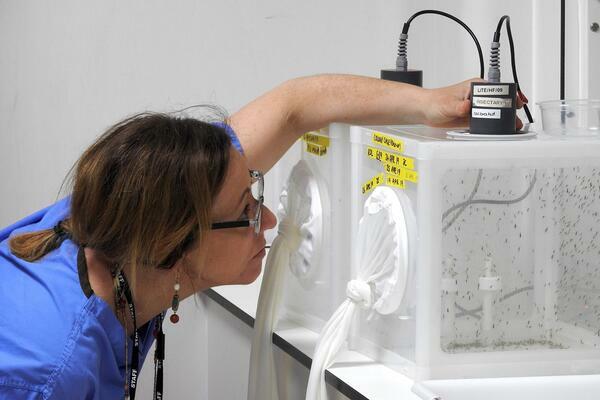
IRPP
The Insecticide Resistance Prediction Platform.
Proactive Strategies for Insecticide Resistance Management and Malaria Control

The LSTM Department of Vector Biology is leading a ground-breaking initiative called the Insecticide Resistance Prediction Platform (IRPP). This four-year program, funded by the Bill & Melinda Gates Foundation, brings together leading experts in insecticide research and vector control from both academia and the industry, along with partner institutions in Africa.
The IRPP is taking an innovative approach towards predicting mosquito resistance to novel insecticides. This effort responds directly to the concerning figures presented in the latest World Malaria Report which indicates a rise in malaria cases from 244 to 249 million between 2021 and 2022. Moreover, it sheds light on the escalating resistance of mosquito vectors to existing insecticides, posing a significant challenge to malaria control efforts, particularly in sub-Saharan Africa, the most affected region. This underscores the pressing need for new solutions to combat malaria, emphasizing the importance of innovative vector control and management strategies tailored to address the growing challenge of insecticide resistance.

How can IRPP make a difference?
The IRPP will examine how pyrethroid resistance in circulation in malaria vectors influences the performance of new insecticides being developed through partnership between industry and IVCC. Specifically, the project delves into the complex interactions between these novel insecticides and their protein targets within pyrethroid-resistant mosquito populations. Through detailed analysis of these molecular dynamics of interactions, the IRPP adopts a dual approach:
Advancing Resistance Surveillance: The IRPP will identify key factors driving resistance to emerging insecticides, enhancing the precision of resistance monitoring methods. This enables researchers to track resistance in mosquito populations accurately, facilitating early detection and response. Such insight is crucial for staying one step ahead in the fight against insecticide resistance, ensuring a proactive understanding of mosquito adaptation.
Steering Insecticide Innovation: The program's findings will support the development of innovative insecticide-based mosquitoes control products. Utilizing advanced ADME techniques tailored to mosquitoes, the IRPP aims to inform the development of next-generation insecticides that are less susceptible to resistance development.
Beyond Pyrethroids
While initially focusing on pyrethroid resistance and its impact on novel insecticides, the programme will also explore the effects of combining insecticides and the emergence of cross-resistance (resistance to multiple classes). Understanding the impact of different resistance mechanisms on products with multiple active ingredients, such as new classes on bednets now in widespread use, is important for ensuring their long-term effectiveness against even the most resilient mosquito populations.
Confronting Resistance: The IRPP's Comprehensive Approach
The IRPP employs a comprehensive strategy that harnesses cutting-edge advancements in chemical biology and genomics to proactively identify existing and potential resistance issues. This approach is supported by a suite of sophisticated tools:
Bioassays: These tests gauge the effectiveness of various insecticides against mosquito populations, providing crucial data for informed decision-making.
Modern Insecticide ADME (Absorption, Distribution, Metabolism, and Excretion): This advanced methodology helps researchers understand how insecticides interact with mosquitoes at a molecular level, informing the development of more effective control strategies.
Chemical-proteomics: This technique offers detailed analysis of metabolic and protein changes in resistant mosquitoes, allowing for a deeper understanding of the underlying mechanisms of resistance.
RNA sequencing: By uncovering genetic alterations associated with resistance, RNA sequencing provides valuable insights into the molecular pathways involved in resistance development.
Functional validation: This process confirms the specific role of identified resistance markers, strengthening the scientific basis for future interventions, and ensuring the effectiveness of control measures.
Together, these tools enable the IRPP to stay ahead of emerging resistance challenges supporting the development of targeted interventions to combat malaria transmission more effectively.
Bridging the Gap: Collaboration for Global Impact
Synergistic Partnerships. The IRPP acknowledges the crucial importance of collaboration in reaching its objectives. We establish strategic partnerships with prominent testing facilities such as the Liverpool Insect Testing Establishment (LITE) at LSTM and the Material Innovation Factory (MIF) at the University of Liverpool, Centre National de Recherche et de Formation sur le Paludisme (CNRFP) and stakeholders like the Innovative Vector Control Consortium (IVCC) and its industrial partners.

From Research to Reality:
The IRPP transcends the boundaries of academia, recognizing the importance of translating research findings into practical solutions. This commitment manifests in two keyways:
Bridging the Gap: The program integrates experiences and expertise from malaria-affected locales, specifically Burkina Faso and Côte d'Ivoire, into its research and development. This approach guarantees that the proposed research frameworks are tailored to meet the unique needs of communities most affected by malaria.
Tailored Solutions: This is achieved through a synergistic partnership among researchers in the UK, Burkina Faso and Cote d’Ivoire, and stakeholders, ensuring that breakthroughs in insecticide innovation and resistance management are not just theoretical but are converted into tangible, field-ready strategies that address the pressing challenges of malaria eradication initiatives.
Sharing Knowledge, Empowering Action
The IRPP shares knowledge through its collection of research, articles, and presentations. These resources showcase our scientific progress and innovative strategies to decode and tackle insecticide resistance.

Get to Know the IRPP Team
Contact us
Hanafy M. Ismail. PI
hanafy.ismail@lstmed.ac.uk
Sharon Mullane
sharon.mullane@lstmed.ac.uk








